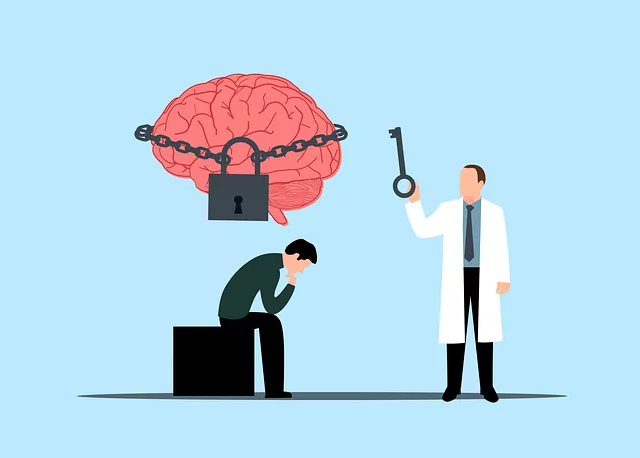Adolescent Therapy at Kaiser Permanente: Resources for Teen Support
Kaiser Permanente (KPMc) provides specialized adolescent therapy through a network of dedicated psyc…….
Welcome to an extensive examination of the multifaceted world of Kaiser Permanente Psychologists, a critical component within the healthcare sector. This article aims to guide readers through the intricacies of this field, shedding light on its origins, global reach, and profound impact. By delving into various aspects, we will uncover how Kaiser Permanente Psychology shapes lives, influences policy, and navigates the complex landscape of mental health care.
Definition:
Kaiser Permanente Psychologist refers to a specialized healthcare professional within the Kaiser Permanente organization, a leading not-for-profit healthcare provider in the United States. These psychologists are integral to the delivery of comprehensive psychiatric and psychological services to patients across various age groups.
Core Components:
Historical Context:
The concept of Kaiser Permanente as a healthcare organization dates back to 1945 when it was founded by Dr. George Kaiser and Henry J. Kaiser in California. The initial focus was on providing comprehensive medical services to industrial workers. Over time, the organization expanded its scope, recognizing the importance of mental health care. In the 1970s and 1980s, a growing emphasis on behavioral healthcare led to the formal integration of psychology services within Kaiser Permanente. This evolution marked a significant step in ensuring that mental health was treated with the same urgency as physical health.
Significance:
In today’s context, Kaiser Permanente Psychologists play a pivotal role in addressing the increasing demand for mental health services. With the World Health Organization (WHO) estimating that nearly 1 in 4 people globally will experience a mental health disorder in their lifetime, the need for accessible, quality care is more critical than ever. Kaiser Permanente’s approach to psychology combines the benefits of a large healthcare network with a patient-centric model, ensuring continuity and coordination in care.
International Reach:
Kaiser Permanente’s influence extends far beyond its roots in the United States. The organization has expanded globally, with operations in several countries, including Canada, Japan, and Latin America. This international presence allows for the sharing of best practices and resources, fostering a network of psychologists dedicated to improving mental health outcomes worldwide.
Trends Shaping the Field:
Regional Variations:
The implementation of Kaiser Permanente psychology services varies across regions, influenced by cultural norms, healthcare systems, and local policies:
| Region | Key Differences |
|---|---|
| United States | Focus on evidence-based practices, with a strong emphasis on research and data-driven decision-making. |
| Canada | Integration with the public healthcare system, offering universal access to psychological services. |
| Japan | Emphasis on holistic health, incorporating traditional Japanese healing practices alongside Western psychology. |
| Latin America | Addressing cultural barriers and language differences through community-based interventions. |
Market Dynamics:
The mental healthcare market, within which Kaiser Permanente operates, is experiencing significant growth. According to a report by Grand View Research, the global mental health care market size was valued at USD 374.2 billion in 2021 and is projected to grow at a CAGR of 9.6% from 2022 to 2030. This expansion creates opportunities for organizations like Kaiser Permanente to expand their services and impact.
Investment Patterns:
Kaiser Permanente, as a not-for-profit organization, operates with a different financial model than traditional for-profit healthcare providers. Its funding primarily comes from member premiums, employer sponsors, and government programs. The organization’s economic stability allows for long-term investments in research, technology, and professional development for its psychologists.
Economic Impact:
The economic influence of Kaiser Permanente Psychologists is multifaceted:
Digital Therapeutics:
One of the most significant technological advancements in Kaiser Permanente Psychology is the emergence of digital therapeutics. These evidence-based interventions, delivered via mobile apps or online platforms, offer accessible treatment options for various mental health conditions. Kaiser Permanente has developed and implemented several digital programs, such as cognitive behavioral therapy (CBT) apps, to reach a broader patient population.
Artificial Intelligence (AI):
AI is revolutionizing psychological assessment and treatment planning. Kaiser Permanente researchers are exploring AI-powered tools to analyze large datasets, predict patient outcomes, and personalize treatment recommendations. These technologies have the potential to improve treatment efficacy and enhance clinical decision-making.
Virtual Reality (VR) Therapy:
VR therapy is gaining traction as a complementary tool for exposure therapy in treating phobias, PTSD, and anxiety disorders. Kaiser Permanente psychologists are experimenting with VR to create immersive therapeutic experiences, offering patients a safe and controlled environment to confront their fears.
Future Potential:
The future of technology in psychology lies in personalized, precise interventions tailored to individual needs. Advances in AI, VR, and digital therapeutics will enable:
Key Policies and Regulations:
Influence on Development:
These policies have a profound impact on the practice of Kaiser Permanente Psychology:
Main Challenges:
Criticisms and Solutions:
Case Study 1: Community-Based Mental Health Initiative
In an urban setting with a high percentage of uninsured residents, Kaiser Permanente launched a community-based mental health program. This initiative included mobile clinics, community outreach events, and partnerships with local schools. The program successfully increased access to psychological services, reduced stigma, and improved patient outcomes, particularly among underserved youth.
Case Study 2: Digital Intervention for Depression
A team of Kaiser Permanente psychologists developed a digital CBT program for patients experiencing mild to moderate depression. The app-based intervention offered personalized therapy sessions, mood tracking, and access to a virtual support group. Results showed significant improvements in depressive symptoms, with many participants continuing the treatment long after completion.
Lessons Learned:
Potential Growth Areas:
Emerging Trends:
Strategic Considerations:
The field of Kaiser Permanente Psychology stands at an exciting juncture, shaped by technological advancements, evolving policies, and a growing global awareness of mental health. As the demand for psychological services continues to rise, the role of these healthcare professionals becomes increasingly vital. By embracing innovation, addressing challenges head-on, and staying true to their core values, Kaiser Permanente Psychologists will continue to shape the future of mental healthcare, ensuring that it is accessible, effective, and tailored to individual needs.
Q: What sets Kaiser Permanente psychologists apart from private practice therapists?
A: Kaiser Permanente psychologists are part of a large healthcare network, offering integrated care, specialized resources, and continuous professional development. They often work in collaboration with primary care providers, ensuring holistic patient care. Private practice therapists may provide excellent care, but they typically operate independently, without the same level of system-level support.
Q: How can I access Kaiser Permanente psychological services?
A: Accessing these services varies by location and insurance coverage. Typically, members of Kaiser Permanente health plans have direct access to their network of psychologists. For those outside the network, a referral from a primary care provider may be required. Many Kaiser Permanente facilities also offer community outreach programs and free or low-cost clinics for those in need.
Q: Are digital therapeutics as effective as face-to-face therapy?
A: Research suggests that digital therapeutics can be highly effective, especially for common mental health conditions. However, face-to-face therapy remains crucial for complex cases or individuals with severe symptoms. The ideal approach often combines digital interventions with traditional therapy to cater to diverse patient needs and preferences.
Q: How does the Affordable Care Act (ACA) impact mental health care?
A: The ACA has significantly improved access to mental healthcare by mandating that insurance plans cover behavioral health services without additional charges. This means that many individuals who previously had limited or no access now have the opportunity to seek psychological services when needed. Kaiser Permanente, with its affiliation with ACA-compliant plans, plays a vital role in realizing these benefits.
Q: What are some signs that indicate I need professional help from a psychologist?
A: Seeking help from a psychologist is a positive step towards improving your mental health and well-being. Some common signs that may warrant consideration include persistent feelings of sadness or anxiety, difficulty managing daily tasks, changes in sleep or appetite, recurrent thoughts of death or suicide, and challenges maintaining healthy relationships. Remember, early intervention can make a significant difference.

Kaiser Permanente (KPMc) provides specialized adolescent therapy through a network of dedicated psyc…….

Bipolar Disorder, characterized by extreme mood swings, is diagnosed and managed by Kaiser Permanent…….

Kaiser Permanente (KPMc) offers comprehensive mental health support through its team of trained psyc…….

Kaiser Therapy for Couples, facilitated by trained mental health professionals within the Kaiser Per…….